




| Hoopoe (Upupa epops (Linnaeus, 1758)) |





|
|
Scientific name: Upupa epops (Linnaeus, 1758) Common name: Hoopoe French name: Huppe fasciée Order: Coraciiformes Family: Upupidae Size: Body size: 26 to 28 cm; Wingspan : 42 to 46 cm; Weight : 55 to 80 g Habitat: Open country with short-grass meadows, hedgerows, orchards especially with very old trees. Food: Insect larva, spiders, slugs, snails, centipede mainly caught on the ground. It is fond of insects hidden inside cowpats. It may also catch insects in crevices on tree barks. Nesting: The nest is located in a hole in an old tree or in an old wall. It is untidily lined with straw and rubbish. Females lay 5 to 7 eggs between April and June. The very bad smell coming from juveniles' excrements is a way to locate and find nests. Migration: Populations of temperate Europe and temperate Asia arrive in March-April and fly back southwards in August-September. Geographic area: Temperate Europe and temperate Asia, North Africa, India, south-east Asia and sub-Saharan Africa. |
The Hoopoe's name comes from its song "Hoop-oop-oop". It has a beige plumage with back and white stripes on the wings and on the tail. The bill is long, slender and decurved. It bears a beautiful erectile crest of russet and black-tipped feathers. The legs are rather short. Populations are declining in areas with intensive agriculture. |
| [To know more about the Hoopoe] [Next picture] [Top] |
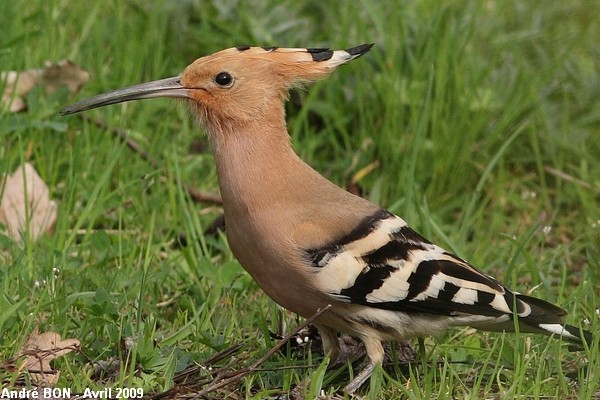
|
I often dream that I take a picture of a Hoopoe with a beautiful erected crest. This will be for another times. Is there a way to make the Hoopoe raise its feathers? Next time I will try to imitate the Hoopoe's song. Connect to this web page in 4 of 5 years from now to know if this works! |
| [To know more about the Hoopoe] [Next picture] [Previous picture] [Top] |
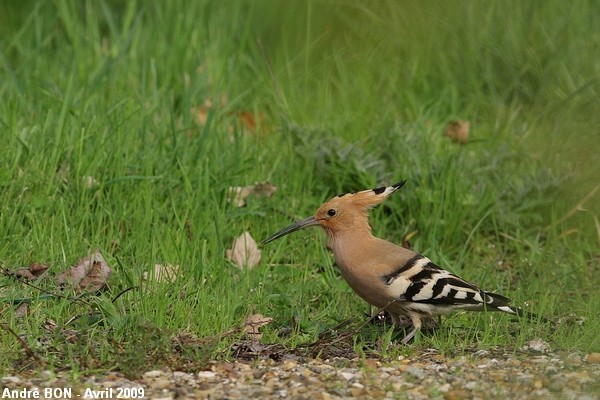
|
I have done all my previous observation of Hoopoes in the south of France, south of the Loire river. Here is the first Hoopoe I have seen in the Paris region. I came back several times to this place hoping to find a nest in a hole on an old tree, but without success. |
| [To know more about the Hoopoe] [Next picture] [Previous picture] [Top] |
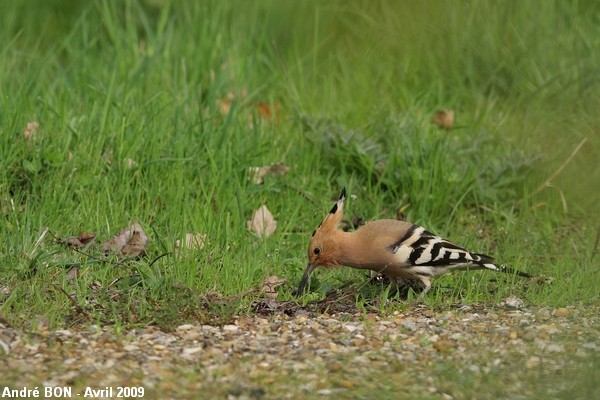
|
I have been able to approach this Hoopoe rather easily as it was busy feeding on larvae on the sides of this road. I have walked behind a hedgerow to be more discreet. |
| [To know more about the Hoopoe] [Next picture] [Previous picture] [Top] |
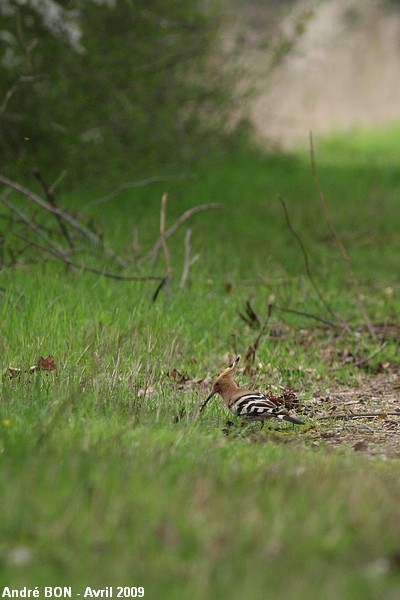
|
Here is the Hoopoe as I have seen it before approaching by walking behind the hedgerow on the left. |
| [To know more about the Hoopoe] [Previous picture] [Top] |
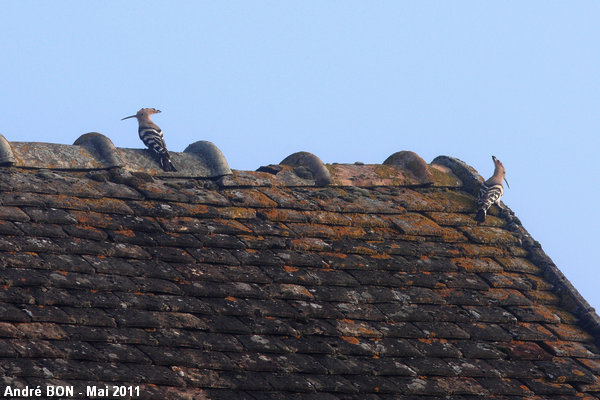
|
My stay in the farm where I have spent my youth, uninhabited most part of the year, may have annoyed this pair Hoopoes whose plan was to nest under the old roof. |